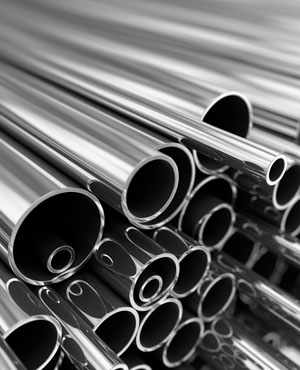
Johannesburg - ArcelorMittal, the world’s biggest steel producer, is turning to rabbits to lower its carbon emissions.
The company will spend €1.1 billion (R14.8 billion) to turn carbon monoxide into ethanol using a microbe normally found in the gut of these mammals. The ethanol can then be converted into biofuel.
ArcelorMittal announced this week that they would be installing bioengineering company LanzaTech’s revolutionary new technology at its new steel mill in Ghent, Belgium.
A spokesperson for ArcelorMittal SA, however, said the technology was not coming to South Africa just yet.
But ArcelorMittal’s vice-president of innovation, Carl de Maré, said if the commercial viability of the project were proven, the technology would be rolled out globally across the company’s mills.
As the world’s biggest steel producer, ArcelorMittal has factories in 19 countries and produced 93.1 million tons of steel last year.
“This new technology will enable us to convert some of these waste gasses into fuels that deliver significant environmental benefits compared with conventional fossil fuels,” said De Maré.
The star of the show is a customised microbe – the Clostridium rabbit-gut bacterium – that will capture carbon monoxide and convert it into ethanol.
ArcelorMittal, which has been working on this project since 2011, has signed a long-term partnership agreement with LanzaTech to use the customised microbe.
About 50% of the carbon used in the chemistry of steel making leaves the process as carbon monoxide. At the moment, the most common practice is to either flare the waste-gas stream or use it to heat and power the steel mill, releasing both carbon monoxide and CO2 into the atmosphere. But the new gas-fermentation process will use the waste gas to produce fuel, lowering the steel mill’s carbon emissions.
Construction of the flagship pilot project in Belgium is expected to start later this year, with bioethanol production expected by mid-2017.
Construction will be in two phases, with phase one providing an initial capacity of 16 000 tons of ethanol per year by mid-2017 and phase two – which will be completed in 2018 – bringing the total capacity to 47 000 tons of ethanol per year.
The company’s idea is to sell its biofuel – as a by-product of the steel-making process – to run cars and aeroplanes.
It said every ton of bioethanol produced displaced 5.2 barrels of fuel and reduced the company’s CO2 emissions by 2.3 tons.
The technology is ground-breaking and was recently awarded the US’s highest green-chemistry honour, the Environmental Protection Agency Presidential Green Chemistry Challenge Award.
It is already successfully operating at steel mills in China, but not yet on the scale of the proposed Ghent plant.
ArcelorMittal will set up a dedicated company for the roll-out of this technology with strategic financial partners. Financing would be sought from a number of different sources, it said.




 Publications
Publications
 Partners
Partners








